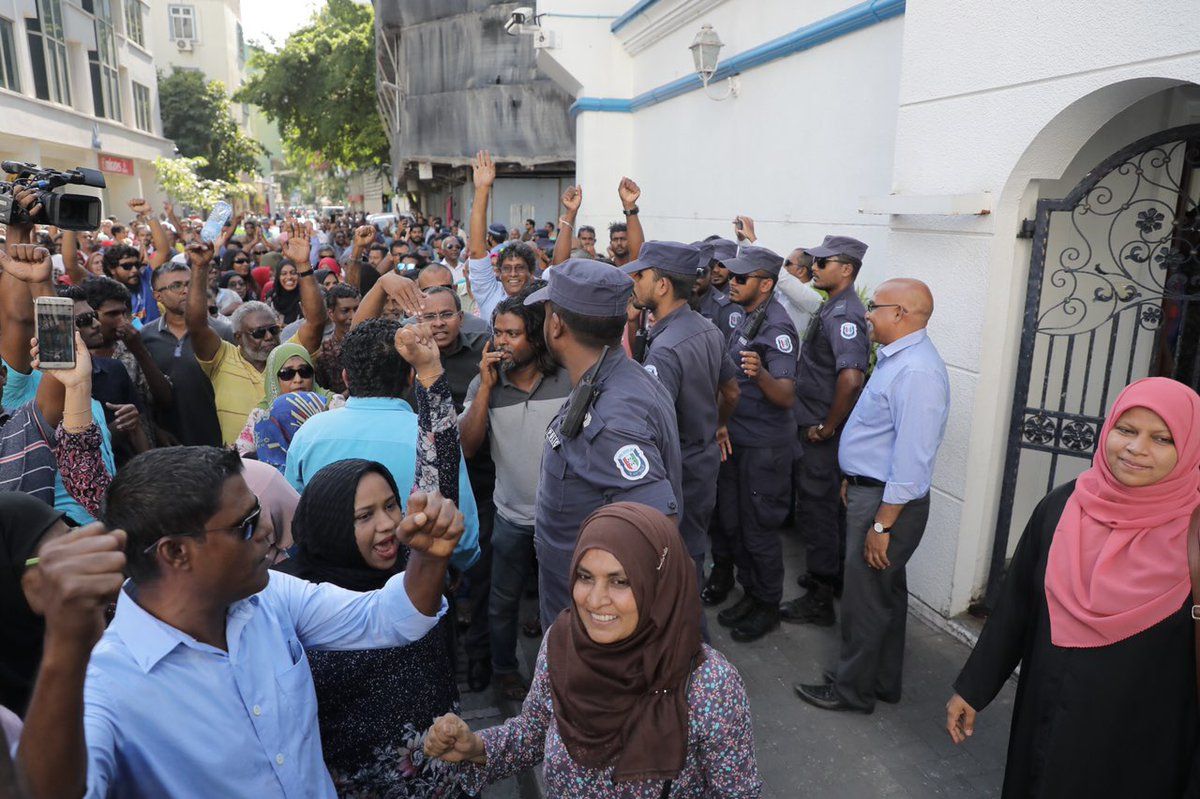Maldives top court rejects president’s petition for fresh polls
There were no grounds to annul the election, the Supreme Court’s full bench ruled unanimously.

21 Oct 2018, 09:00
The Supreme Court on Sunday rejected President Abdulla Yameen’s petition to annul the September 23 election.
In a unanimous ruling by the full bench, the court also denied the president’s request to oversee a police or military probe into alleged vote-rigging and electoral fraud.
“The court rules that there is no legal or constitutional basis to question the legality of the election based on the evidence submitted,” declared Chief Justice Dr Ahmed Abdulla Didi.
A crowd of opposition supporters erupted in celebration when reporters emerged from the courthouse with news of the anxiously awaited judgment.
Become a member
Get full access to our archive and personalise your experience.
Already a member?
Discussion
No comments yet. Be the first to share your thoughts!
No comments yet. Be the first to join the conversation!
Join the Conversation
Sign in to share your thoughts under an alias and take part in the discussion. Independent journalism thrives on open, respectful debate — your voice matters.




